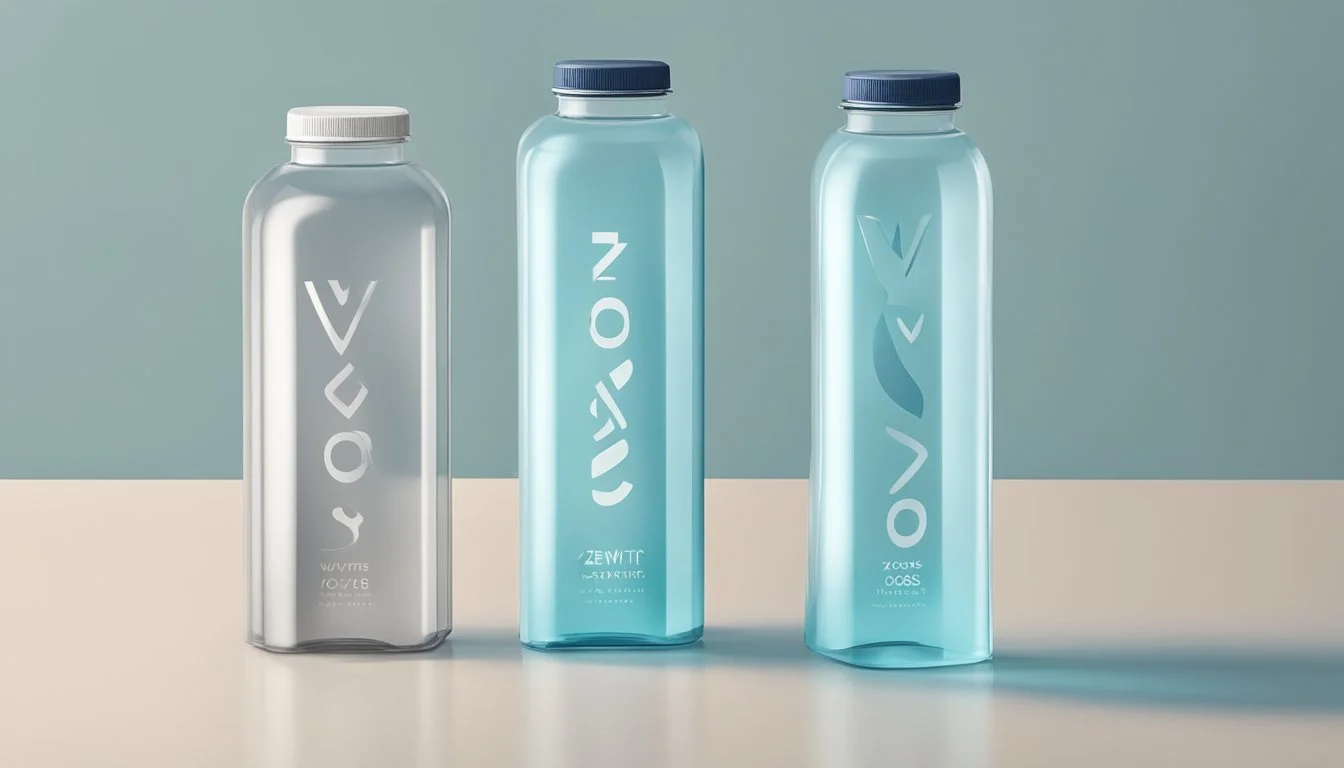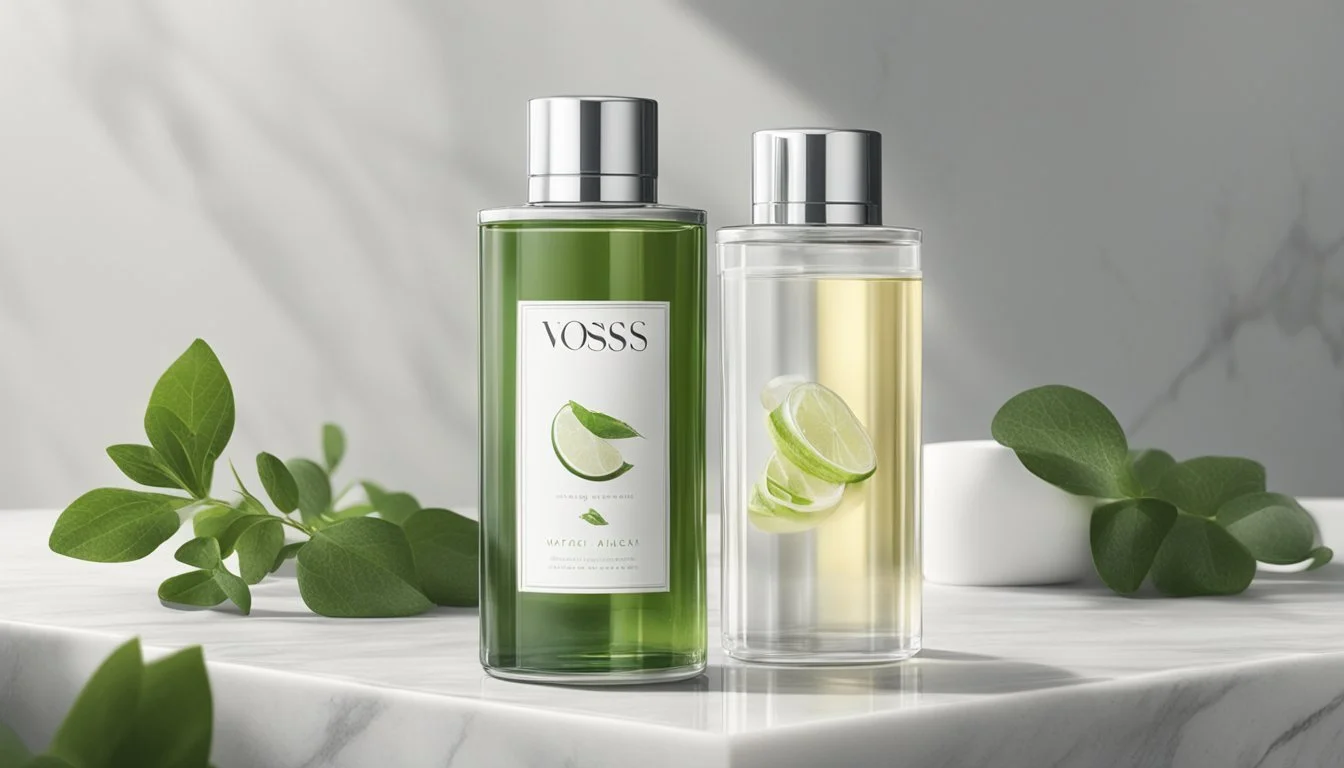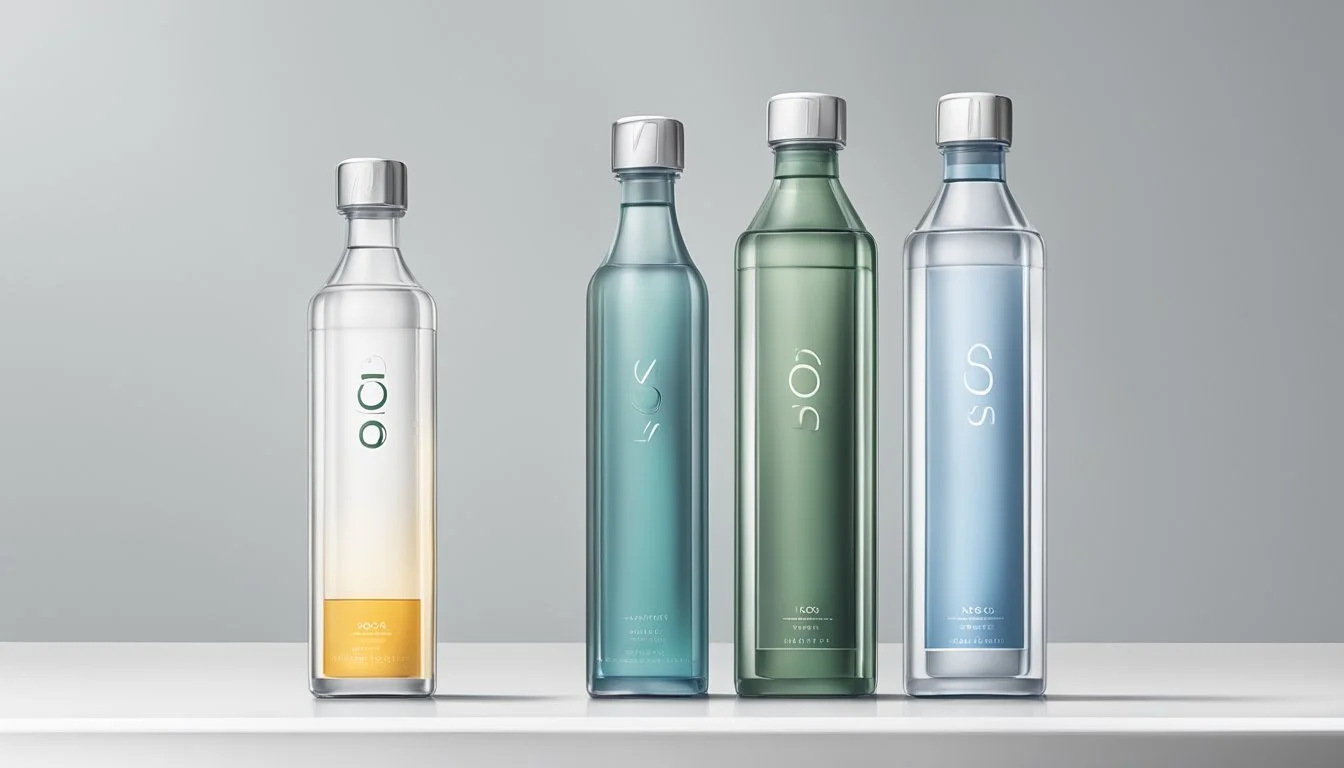Voss vs. Zenwtr
Which Bottled Water is Better for You?
When choosing between Voss and ZenWTR, consumers often weigh factors such as taste, hydration, and health benefits. ZenWTR stands out for its natural alkalinity, offering a balanced pH without artificial additives. This makes it a strong contender for those who prioritize natural ingredients in their bottled water.
On the other hand, Voss is known for its crisp taste and purity, originating from Norwegian artesian water sources. The sleek design of Voss bottles also makes it a popular choice among those who appreciate aesthetics in their hydration choices.
Ultimately, the better option largely depends on personal preference and specific health considerations. While ZenWTR appeals to those seeking natural alkalinity, Voss might be more suitable for individuals looking for a refreshing and pure drinking experience.
Understanding Bottled Water
Bottled water varies significantly by source, type, health implications, and purification methods. Key factors influencing bottled water include the pH balance, mineral content, and enhancement processes used to ensure safety and quality.
Source and Types
There are various sources and types of bottled water, each with unique attributes.
Spring Water: Sourced from natural springs, rich in minerals.
Artesian Water: Originates from a confined aquifer.
Mineral Water: Naturally contains dissolved minerals.
Purified Water: Processed to remove contaminants.
Alkaline Water: Higher pH level, believed to balance body acidity.
For instance, Voss sources water from an underground aquifer in southern Norway, while other brands may extract water from volcanic rocks or the French Alps.
Health Implications
The health benefits of bottled water depend on its mineral content and pH balance.
Minerals and Electrolytes: Essential for hydration and bodily functions.
Alkaline Water: Claims to neutralize acidity and boost metabolism with higher pH levels (e.g., 9.5).
Purity: Ensures safe drinking water, free from contaminants.
ZenWTR, with its natural alkalinity and higher mineral content, is designed to provide a smoother taste and better hydration compared to traditionally purified water like Aquafina.
Purification and Enhancement
Purification processes vary to ensure water quality and safety.
Ozone Treatment: Eliminates bacteria and viruses.
Vapor-Distillation: Removes impurities through distillation.
Ultraviolet Light: Kills pathogens present in water.
Enhancements: Adding nutrients like Voss+ Aquamin, which includes electrolytes from marine sources.
For example, ZenWTR utilizes ocean-bound plastic for its bottles, emphasizing environmental sustainability along with its purification methods.
Incorporating these practices, bottled water brands aim to provide clean drinking water with superior taste and enhanced mineral content.
Comparative Analysis of Voss and ZenWTR
Comparing Voss and ZenWTR involves examining their taste profile, nutritional value, and environmental impact. Each aspect provides key insights to help consumers make an informed choice based on their preferences and values.
Taste Profile
Voss is renowned for its clean and crisp taste, attributed to its spring source in the pristine wilderness of Norway. Packaged predominantly in glass bottles, Voss's design appeals to those seeking a luxurious water experience. The water is known for its neutral pH, offering a balanced taste without metallic or chemical aftertastes.
ZenWTR, on the other hand, features a higher alkalinity with a pH of 9.5. This makes it popular among those who prefer an alkaline diet. ZenWTR’s taste is smooth and slightly minerally, which some find invigorating and clean. Its soft, refreshing flavor suits athletes and fitness enthusiasts who often seek more than just hydration.
Nutritional Value
Voss is often appreciated for its low mineral content, making it a favorite for its pure, unadulterated water experience. It contains minimal amounts of naturally occurring minerals, offering a fresh yet neutral hydration option without adding significant electrolytes or nutritional benefits.
ZenWTR boasts a higher pH level and includes added electrolytes, aiming to enhance hydration and support an active lifestyle. Its alkaline nature is marketed to help neutralize body acidity, which some believe can provide additional health benefits. ZenWTR's composition includes essential minerals like calcium and magnesium, making it a nourishing choice for those looking to integrate beneficial nutrients into their water intake.
Environmental Impact and Sustainability
Voss has made strides towards environmental sustainability by using glass bottles, which are fully recyclable and reduce plastic waste. The use of high-quality glass not only maintains the purity of the water but also appeals to environmentally conscious consumers. Voss is committed to water stewardship practices, protecting natural resources from pollutants and over-extraction.
ZenWTR emphasizes its eco-friendly packaging, utilizing bottles made from 100% recycled ocean-bound plastic. This initiative helps reduce ocean plastic pollution and lower carbon footprints. ZenWTR is dedicated to sustainability, promising to reclaim more plastic waste than it produces, thus contributing positively to the environment.
Both brands reflect a commitment to reducing environmental impacts, though their approaches differ significantly. Voss leans towards premium, reusable glass, while ZenWTR focuses on recycling and reusing plastics to combat ocean pollution.
Brand Overview
Voss and ZenWTR are two prominent bottled water brands that cater to health-conscious individuals and are often recognized for their premium quality and unique attributes.
History and Origins
Voss originates from southern Norway and was founded in 1998. The brand quickly gained a reputation for its pristine quality and sleek cylindrical bottle design, often associated with high-end dining and celebrities.
ZenWTR is a relatively new player, emerging with a strong environmental ethos. Founded by Lance Collins, ZenWTR utilizes 100% post-consumer recycled bottles made from ocean-bound plastic, underscoring its commitment to sustainability. Available in over 4,000 stores in the U.S., including Whole Foods, ZenWTR targets eco-conscious consumers.
Market Perception
Voss is perceived as a luxurious brand, often seen in upscale restaurants and endorsed by celebrities. Its aesthetic appeal and association with purity have positioned it as a status symbol in the bottled water market.
ZenWTR has carved out a niche among environmentally aware and health-conscious individuals. The brand's focus on sustainability, along with its use of ocean-bound plastic, appeals to a demographic that values eco-friendly products. This positioning has garnered ZenWTR significant attention and a loyal customer base focused on both health benefits and environmental impact.
In conclusion, Voss and ZenWTR embody distinct philosophies and cater to different market segments, yet both maintain a strong presence in the premium bottled water market.
Safety and Quality Standards
Voss
Voss water is sourced from an untouched Norwegian aquifer. The water undergoes rigorous filtration to remove impurities.
It adheres to international standards, ensuring safety and quality. The brand is well-regarded for its purity, although it has a low mineral content compared to some other brands.
ZenWTR
ZenWTR focuses on sustainability and environmentally friendly practices. The water is packaged in bottles made from 100% recycled ocean-bound plastic.
This brand adheres to stringent safety standards. ZenWTR undergoes a multi-step purification process that includes reverse osmosis, ensuring it meets high-quality standards.
Comparison
Source: Voss (Norwegian aquifer), ZenWTR (varied sources)
Purification: Voss (rigorous filtration), ZenWTR (multi-step including reverse osmosis)
Packaging: Voss (glass and PET), ZenWTR (recycled ocean-bound plastic)
Mineral Content: Voss (low), ZenWTR (variable)
Both brands prioritize safety and ensure adherence to strict quality controls. The choice between Voss and ZenWTR may come down to personal preferences regarding environmental impact and mineral content.
Consumer Experience
When it comes to consumer experience, both Voss and ZenWTR bring unique attributes to the table.
Taste: Many consumers appreciate Voss for its clean, crisp taste, often described as refreshing with a slight mineral hint. ZenWTR, on the other hand, offers a premium alkaline water experience that is smooth and slightly sweet, appealing to health-conscious individuals.
Packaging: Voss is known for its iconic cylindrical glass bottles, which exude a sense of luxury. ZenWTR packaging emphasizes sustainability, utilizing 100% recycled ocean-bound plastic, making it attractive to environmentally conscious consumers.
Availability: ZenWTR is often found in upscale grocery stores and health food shops, catering to a specific market segment. Voss, while also available in high-end locations, has a broader presence and can frequently be found in convenience stores.
Price: ZenWTR is priced in the higher-end segment, typically costing around $2 to $3 per bottle. Voss also sits in the premium price range but can sometimes be found at a slightly lower cost compared to ZenWTR.
Brand Availability Packaging Taste Description Price Range Voss Widespread Glass, cylindrical bottle Clean, crisp $2 - $2.50 ZenWTR Specialized stores Recycled ocean-bound plastic Smooth, slightly sweet $2 - $3
Water Sommelier Insight: Some water sommeliers highlight the purity and source of Voss, which comes from a natural spring in Southern Norway. ZenWTR’s unique selling point remains its alkaline nature and sustainability efforts.
Personal Preference: Ultimately, the choice between Voss and ZenWTR often comes down to personal preference. Those seeking a traditional, luxurious experience might lean towards Voss, while eco-conscious consumers preferring alkaline water may opt for ZenWTR.
More About Voss
Mountain Valley Spring Water vs Voss: Which Bottled Water is Better?
Voss vs Whole Foods Italian Still Mineral water: Which Bottled Water is Better?






